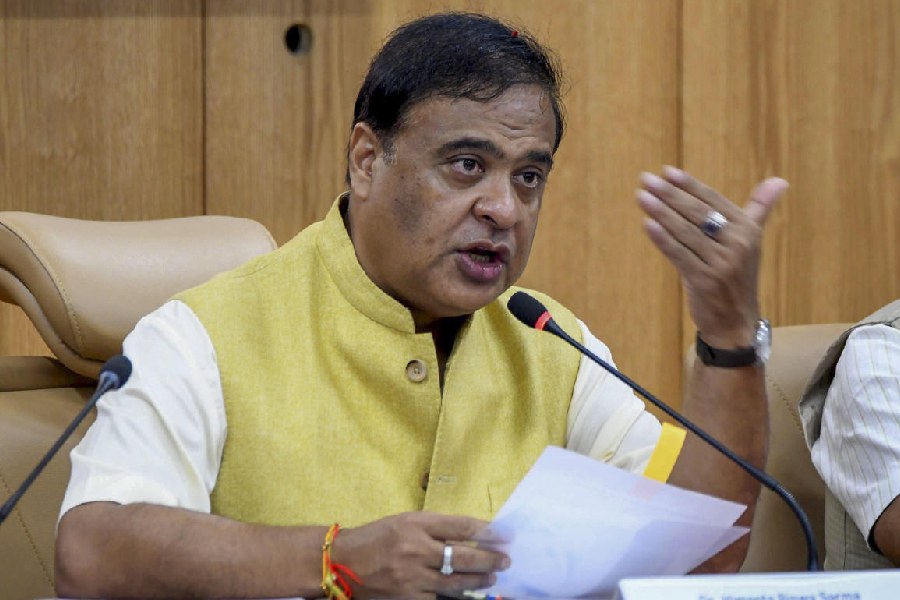 |
After being under house arrest for more than one-and-a-half decades since 1989, Aung San Suu Kyi undertook her first trip outside Myanmar in May, which was to a World Economic Forum conference in Bangkok. This was quickly followed, after a week at home, by visits to Switzerland (to the International Labour Organization), Norway (to receive the Nobel Peace Prize), Ireland, Britain and France, lasting for more than two weeks. She gave her Nobel Prize acceptance speech 21 years after it was awarded.
It came as no surprise that Suu Kyi’s international visits neither included India nor China. Over the years, while China’s support to the military regime in Myanmar had been clear and consistent, India’s approach has been ambiguous. Visiting India before China or vice versa during her first foreign tours would have led to speculation about her preference for one over the other. Instead, she chose to go to European countries that have been steadfastly supporting her cause for two decades, and this would have been in keeping with what her loyal followers in Myanmar would have wanted. There have been mutterings in the Association of South-east Asian Nations that she should have sought to pay her respects to the regional grouping first, but given ASEAN’s comparative indifference to her plight, this is hardly a sustainable argument. The Chinese media have reported on her visits, but have maintained an eloquent silence on their results or implications.
European governments bestowed on Suu Kyi the kind of attention that is usually reserved for heads of State. She also received an enthusiastic welcome from the general public everywhere and shared the stage with the rock star, Bono, in Ireland — he had been one of her noted protagonists. The media attention, public support and the official honour paid to her are a tribute to her remarkable capacity — like that of the other world icons such as the Dalai Lama and Nelson Mandela — to suffer isolation for decades and yet uphold the principles that they hold dear.
Suu Kyi used her visits abroad to articulate her views forcefully on the current transition process in Myanmar. Western governments had applied economic and political sanctions and numerous international organizations pursued a relentless campaign against military rule in Myanmar. There are many who question the effectiveness and role of sanctions in bringing about political changes, but Suu Kyi indicated that she considered sanctions a significant variable in bringing about positive changes in Myanmar. There is a growing anxiety in some circles that given the current ‘feel good’ perception about the prospects of transition in Myanmar, international concern on progress towards democracy may soon dissipate, resulting in a stalled political transition and leaving the military in full control of the governance apparatus. Therefore Suu Kyi was constrained not only to express her gratitude to various international actors for their longstanding support, but also to caution them about succumbing to “reckless optimism” and “compassion fatigue”.
Suu Kyi’s advocacy of cautious optimism is based on a nuanced understanding of the current status of the political transition process. She urged the international community to focus not merely on the procedural dimension of democracy, but also on its prerequisites such as the rule of law and an inclusive economic environment. Fears that non-transparent investment patterns may give a further boost to the existing crony capitalism prompted Suu Kyi to urge foreign firms to refrain from working with the Myanmar Oil and Gas Enterprise until Myanmar became a signatory to the International Monetary Fund code on transparency. The same motivations have also prompted her to call for investments that strengthen the local economy through job creation, and for assistance of the international community to foster vibrant institutions and ensure capacity-building.
Predictably, Suu Kyi’s visits abroad have generated a degree of friction with the Myanmar government. According to some sources, her itinerary management left much to be desired. Neither the Myanmar authorities nor the Thai government were formally notified in advance about her travel plans. As a consequence, the Myanmar president, Thein Sein, reportedly, had to cancel his own visit to Thailand because it coincided with her programme. More important, there have been additional and substantive areas of tension between Suu Kyi and the Naypyidaw government.
Firstly, during her European trip, Suu Kyi customarily used the name “Burma” instead of “Myanmar”, which has not gone down well with the authorities. The Myanmar election commission issued a statement stating that Suu Kyi’s National League for Democracy should respect the constitution by refraining from the use of the old name. Suu Kyi and her followers contested elections according to the election laws and took the oath as mandated by the constitution. Both the constitution and the electoral laws use the name Myanmar, and not Burma. However, Suu Kyi’s approach is in consonance with her stand that she will respect the constitution but not necessarily abide by it. The election commission’s displeasure at Suu Kyi’s continued use of “Burma” may not have any major impact on the status of the NLD in parliament, but needless friction with a constitutional body such as election commission is confrontational and may have consequences that cannot be immediately foreseen.
Secondly, in an observation that may have long-term implications, Suu Kyi, while referring to the wrongs of the past at the London School of Economics, declared: “Time alone cannot heal. There has to be acknowledgement and how that acknowledgement is going to be made is a procedural matter.... Are we going for commission of inquiry by an external body such as the United Nations commission for human rights, or is it something that is going to be internal?... These are procedural matters.” However, a few days later in France, she adopted a different position and said she held no grudges against the military regime. Nonetheless, the military leadership would have taken serious note that Suu Kyi had referred to a commission of inquiry by an external agency. Such pronouncements, even by low-level NLD members, about any commission of inquiry will surely infuriate the army and ensure that the hardliners in the military, who are suspicious of any political reform, regain the upper hand. After Suu Kyi’s return home, General Myint Swe, reportedly a hardliner, was nominated for the vacant office of vice-president.
Thirdly, the Thein Sein government, which has been working hard to attract international investments, may regard Suu Kyi’s indication of cautious optimism with more than an element of dismay. While Suu Kyi calls upon Western governments to adopt a circumspect approach to investments in Myanmar, her ability to influence China is negligible. Therefore, if the West wishes to compete with China in Myanmar, there is little possibility that its companies can refrain from working with government-owned entities, especially in the natural resources sector. Little wonder then that the United States of America has already eased restrictions on American companies to invest in Myanmar, including in the field of energy.
Suu Kyi is an Opposition leader who will doubtless work continuously on expanding the boundaries of dissent and democratic expression. This will naturally generate tensions in her relationship with the government. However, she also has an urgent need to bridge the multiple fault-lines that clutter the political landscape of Myanmar. She referred in her lectures abroad to the continuing armed conflict in the Kachin state and communal violence between Buddhists and Muslims in Arakan. Given the fact that the ongoing ethnic and sectarian conflict in several parts of the country will act as a brake on the political transition process, broader principles and processes that can address such complex conflicts need to be articulated by a responsible leader like Suu Kyi no less than by the government. Now that she has returned home to the unpleasant realities, her first step, though belated, should be to visit the sites that are experiencing violence and take stock of the situation.










